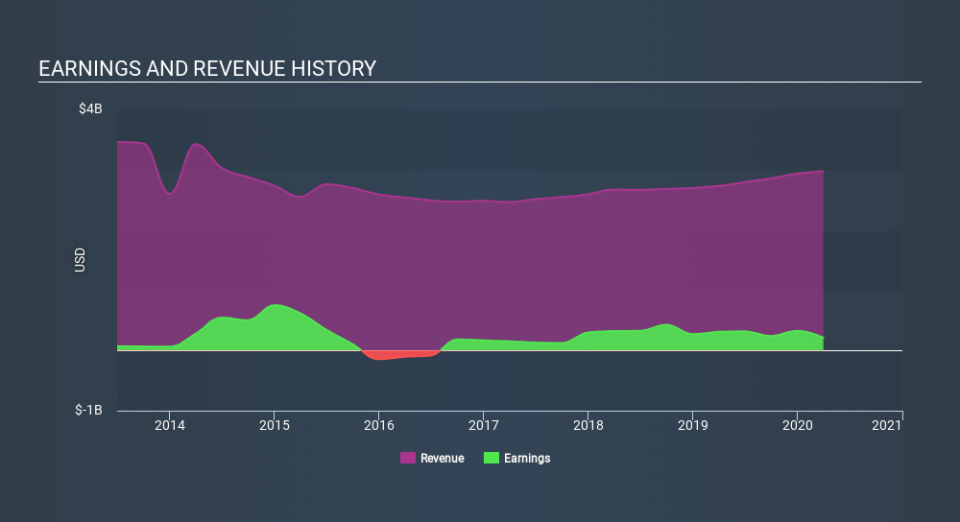Should You Be Concerned About Graham Holdings Company's (NYSE:GHC) Historical Volatility?

If you're interested in Graham Holdings Company (NYSE:GHC), then you might want to consider its beta (a measure of share price volatility) in order to understand how the stock could impact your portfolio. Volatility is considered to be a measure of risk in modern finance theory. Investors may think of volatility as falling into two main categories. The first type is company specific volatility. Investors use diversification across uncorrelated stocks to reduce this kind of price volatility across the portfolio. The second type is the broader market volatility, which you cannot diversify away, since it arises from macroeconomic factors which directly affects all the stocks on the market.
Some stocks mimic the volatility of the market quite closely, while others demonstrate muted, exagerrated or uncorrelated price movements. Beta can be a useful tool to understand how much a stock is influenced by market risk (volatility). However, Warren Buffett said 'volatility is far from synonymous with risk' in his 2014 letter to investors. So, while useful, beta is not the only metric to consider. To use beta as an investor, you must first understand that the overall market has a beta of one. Any stock with a beta of greater than one is considered more volatile than the market, while those with a beta below one are either less volatile or poorly correlated with the market.
Check out our latest analysis for Graham Holdings
What we can learn from GHC's beta value
Looking at the last five years, Graham Holdings has a beta of 0.87. The fact that this is well below 1 indicates that its share price movements haven't historically been very sensitive to overall market volatility. This suggests that including it in your portfolio will reduce volatility arising from broader market movements, assuming your portfolio's weighted average beta is higher than 0.87. Beta is worth considering, but it's also important to consider whether Graham Holdings is growing earnings and revenue. You can take a look for yourself, below.
Does GHC's size influence the expected beta?
Graham Holdings is a small cap stock with a market capitalisation of US$1.8b. Most companies this size are actively traded. Small companies often have a high beta value, but they can be heavily influenced by company-specific events. This might explain why this stock has a low beta.
What this means for you:
Since Graham Holdings is not heavily influenced by market moves, its share price is probably far more dependent on company specific developments. It could pay to take a closer look at metrics such as revenue growth, earnings growth, and debt. In order to fully understand whether GHC is a good investment for you, we also need to consider important company-specific fundamentals such as Graham Holdings’s financial health and performance track record. I urge you to continue your research by taking a look at the following:
Financial Health: Are GHC’s operations financially sustainable? Balance sheets can be hard to analyze, which is why we’ve done it for you. Check out our financial health checks here.
Past Track Record: Has GHC been consistently performing well irrespective of the ups and downs in the market? Go into more detail in the past performance analysis and take a look at the free visual representations of GHC's historicals for more clarity.
Other High-Performing Stocks: Are there other stocks that provide better prospects with proven track records? Explore our free list of these great stocks here.
Love or hate this article? Concerned about the content? Get in touch with us directly. Alternatively, email editorial-team@simplywallst.com.
This article by Simply Wall St is general in nature. It does not constitute a recommendation to buy or sell any stock, and does not take account of your objectives, or your financial situation. We aim to bring you long-term focused analysis driven by fundamental data. Note that our analysis may not factor in the latest price-sensitive company announcements or qualitative material. Simply Wall St has no position in any stocks mentioned. Thank you for reading.

 Yahoo Finance
Yahoo Finance 
